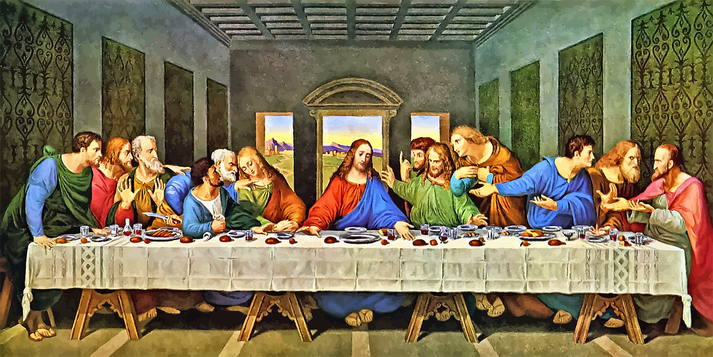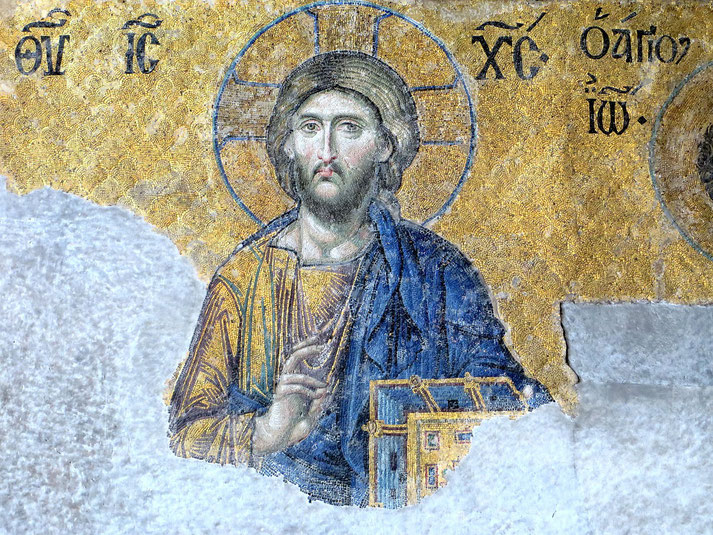How the celebration of Easter caused dramatic conflicts within the early church

When most people think of Easter, they probably picture pastel-colored eggs, baskets full of candy, and maybe a visit from the Easter Bunny.
But did you know that this beloved holiday was once the source of bitter conflict and controversy in the early Christian Church?
One of the major points of contention was the date on which Easter should be celebrated, with different factions of the Church advocating for different methods of calculation.
The debate over the date of Easter may seem like a minor issue, but it was emblematic of larger conflicts within the early Christian Church, and it left a lasting legacy of division and controversy.
The historical origins of Easter
In the Jewish tradition, Easter is closely linked to the festival of Passover, which commemorates the Israelites' liberation from slavery in Egypt.
According to the New Testament, Jesus Christ was crucified and buried on the day before the Jewish Passover, and then rose from the dead three days later, on the first day of the week.
This event is commemorated by Christians as the resurrection of Jesus Christ, which is the central event of the Christian faith.
In the first few centuries of Christianity, there was no single date for Easter.
Different Christian communities celebrated it on different days, based on their own local traditions and calculations of the date of the resurrection.
However, as Christianity spread and became more organized, the need for a standardized date for Easter became more pressing.
What was the Quartodeciman Controversy?
The Quartodeciman Controversy the name given to the conflict in the early Christian Church over the date of the celebration of Easter.
The controversy arose in the 2nd century when some Christian communities in Asia Minor, including the churches in Ephesus and Smyrna, continued to celebrate Easter on the 14th day of the Jewish month of Nisan, the same day that the Jewish holiday of Passover was celebrated.
These Christians were known as Quartodecimans, from the Latin word for "fourteen."
Other Christian communities, including those in Rome and Alexandria, celebrated Easter on the Sunday following the Jewish Passover, regardless of the date.
They believed that the resurrection of Jesus had taken place on a Sunday, so it was appropriate to celebrate Easter on that day.
The Quartodecimans argued that they were following the example of the apostles, who had celebrated Easter on the 14th of Nisan, and that changing the date would be a departure from apostolic tradition.
They also believed that the celebration of Easter should be tied to the Jewish Passover, as both events commemorated God's deliverance of his people.

Attempts at concensus
The issue came to a head in the 2nd century, when Polycarp, the bishop of Smyrna, traveled to Rome to meet with the bishop Anicetus to discuss the date of Easter.
Polycarp insisted that Easter should be celebrated on the 14th of Nisan, the Jewish date of Passover, while Anicetus argued for a fixed date.
The two bishops were unable to reach an agreement, but they did manage to maintain friendly relations despite their disagreement.
However, the debate continued for several centuries, with different regions of the Church celebrating Easter on different days.
In 325 CE, the Council of Nicaea attempted to settle the matter once and for all.
The council decreed that Easter should be celebrated on the first Sunday following the first full moon after the vernal equinox, which meant that it would usually fall between March 22 and April 25.

Despite this, not all Christian communities accepted this decision, and the debate continued.
In the 5th century, the Celtic Christian Church in Britain and Ireland continued to celebrate Easter on the 14th of Nisan, leading to conflict with the Roman Church.
The conflict in the Celtic Church was eventually resolved in the 7th century, when the Synod of Whitby in England decided that Easter should be celebrated according to the Roman method.
Why it mattered
The debate over the date of Easter may seem like a minor issue, but it was emblematic of larger conflicts within the early Christian Church.
The question of whether to follow Jewish customs or adopt Roman practices was a major source of tension, and the debate over Easter was just one manifestation of this tension.
The resolution of the conflict over Easter helped to establish a more unified Christian Church, but it also left a legacy of division and controversy that continues to this day.
What do you need help with?
Download ready-to-use digital learning resources
Copyright © History Skills 2014-2025.
Contact via email
With the exception of links to external sites, some historical sources and extracts from specific publications, all content on this website is copyrighted by History Skills. This content may not be copied, republished or redistributed without written permission from the website creator. Please use the Contact page to obtain relevant permission.





